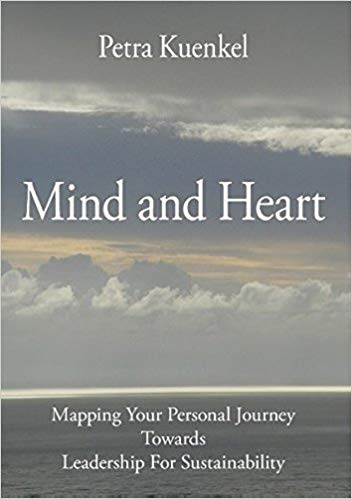As a member of the Executive Committee of the International Club of Rome and the founder of the Collective Leadership Institute my passion is invested in driving global change towards sustainability. The world’s challenges are local and global – they range from climate change to ecosystem decline, from energy insecurity to water scarcity. They affect resource management, poverty, economic justice, food security, demographic change, population growth and more. I believe that necessary transformations towards a more sustainable world require more than a declaration of commitment to global goals. Multiple actors at multiple levels need to follow a call to collective action. Stewarding sustainability transformations across and beyond institutional boundaries means learning the art of transformative process and systems design.
If we anchor vitality and resilience in our societies we can walk together into a better future.
Petra Kuenkel
Collective human action towards cutting greenhouse gas emissions and enhancement of carbon sinks is the only way to a steer away from the dangers of climate change and resource depletion. Many actors need to take up a stewardship role in collectively ensuring a safe pathway for the Earth. This requires a shift in thinking towards seeing humankind as an integral part of the Earth System – and a much more responsible actor. Transformation literacy is the knowledge and capacity of a collective of decision-makers, change agents and institutional actors to steward sustainability transformations effectively together across institutions, societal sectors and nations.Getting towards a sustainable world requires a mindshift towards global and local caring. It needs a new approach that is best captured as collective stewardship. The world is sustainable when humankind as a whole is able to live well with each other and within the systemic logic of the planetary boundries.
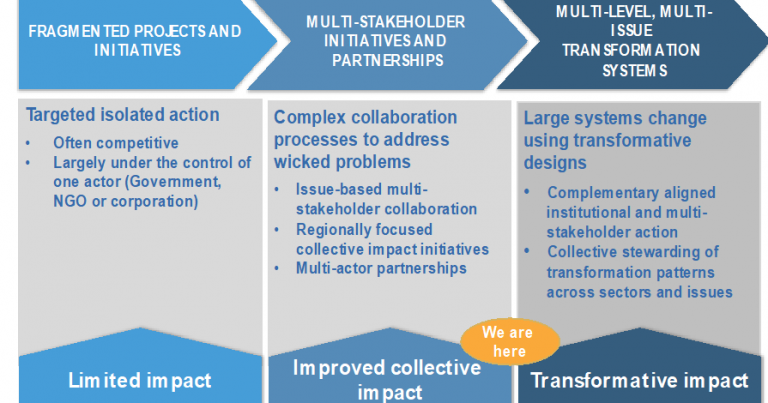
Currently, too many approaches to sustainability operate in isolation from each other, often in competition. Since several years, change-makers for sustainability are increasingly working in partnerships between govenments, civil society and the private sector. This is greatly enhanced by collaboration literacy, the knowledge about how best to design change processes that include multiple stakeholders. This is a great step ahead and well supported by the Sustainable Development Goal no. 17 on partnerships. The many necessary transformative processes will require that collaborative actors become more aware how and when they contribute as part of a larger transformation system.
Descriptions of sustainability range from the balance of people, planet and profit to the achievement of the 17 Sustainable Development goals; and from managing more than 10 billion people within planetary boundaries to planetary thrivability or to a mutually supportive harmony of people and planet. Transformation to sustainability is the pathway to co-creating a world that works for 100% of humanity and the planet. It needs to take place at all levels of the (global) society and requires a fundamental change in the way we operate with each other and the planet. Transformation has a range of meanings, but the term broadly captures the following characteristics:
- Deeply innovative approach towards thinking, acting, power structures and relationships.
- Both radical and incremental change in the global operating system.
- An evolution of structures and systems into better functionality benefitting all of humanity and the planet.
- A co-creative process of mutual learning towards increasing vitality of an integrated planetary life.
- A re-arrangement of existing structures and processes so that novelty for how humankind responsibly operates with each other and the planet can emerge.
The ultimate goal is not only to stop climate change and maintain a safe operating space for humankind and the planet, but also invigorate the human competencies to co-create multiple forms of responsible citizenship in the era of the Anthropocene – the evolutionary period, in which the behavior of human being determines the future of the planet.
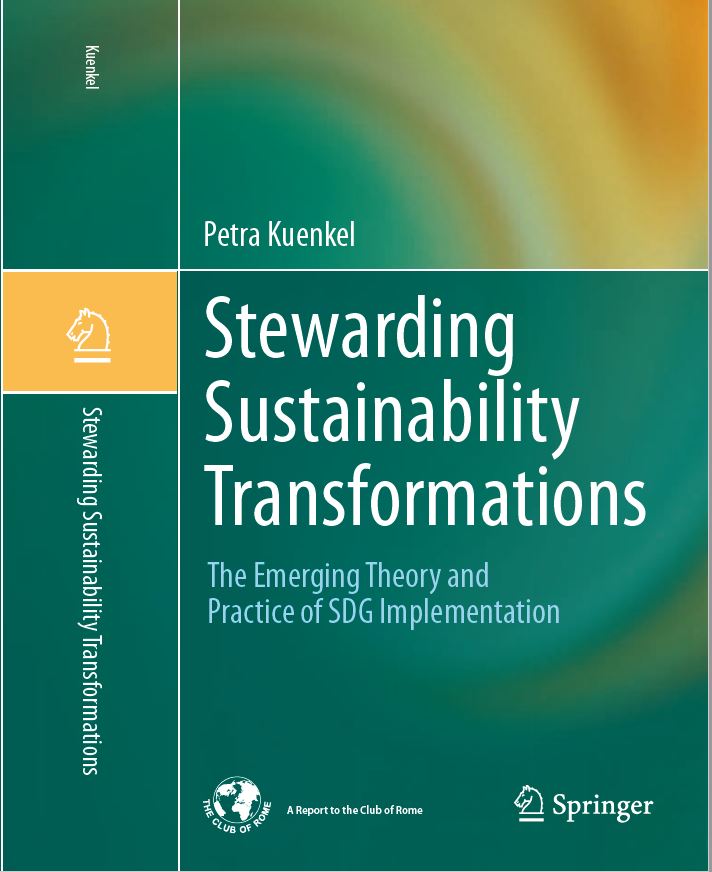
It is time to bring human beings back to where they belong: into the center of attention as transformation agents towards a sustainable interdependent world. Collaboration literacy is a pathway to transformation literacy – the skill to steward transformative change collectively across the boundaries of institutions, nations, sectors and cultures. A skill that – given the current distance to the far ahead goal of a world that works for 100% of humanity and the planet – is not a nice to have option, but a must. The urgency for humankind’s ability to consciously change behavior so as to stay within the ‘safe operating space’ of the planetary boundaries suggests that designing and implementing transformative change is a skill requiring widespread distribution. It needs to become the day-to-day management approach of governments, development agencies, corporations and civil society activists.
Stewarding sustainability transformations is a collective task. It needs to be built on the capacity of many actors to lead transformative change collectively. Moreover, it needs to bring out human competencies to navigate complexity, and invigorate existing competencies to co-create, maintain, steward, or rehabilitate patterns of aliveness in smaller and larger systems. This is a crucial element, as it suggests moving from focusing on human deficits to acknowledging and enhancing human competencies.
Stewarding transformations needs to become the day-to-day management approach of governments, development agencies, corporations and civil society activists.
Petra Kuenkel
Transformation literacy must be built on an inspiring reconnection with the essential features of life’s processes that determine our evolutionary development. It needs to reach people’s hearts and minds – because this is the pathway to dynamic and self-driven change in behavior. If the agent of transformation is human, than invigorating human competencies is central to the acceleration of change.
- Transformative process designs refer to the time sequence of collaborative process architectures that support multiple actors to solve issues of common concern. Well-designed collaborative change processes invigorate human competencies and help actors shape transformative change collectively.
- Transformative systems designs refer to the patterned arrangement of change interventions by multiple institutional actors to address large-scale complex sustainability issues. These interventions may include meta-collaboration between different multi-stakeholder initiatives and require a collective stewardship approach.
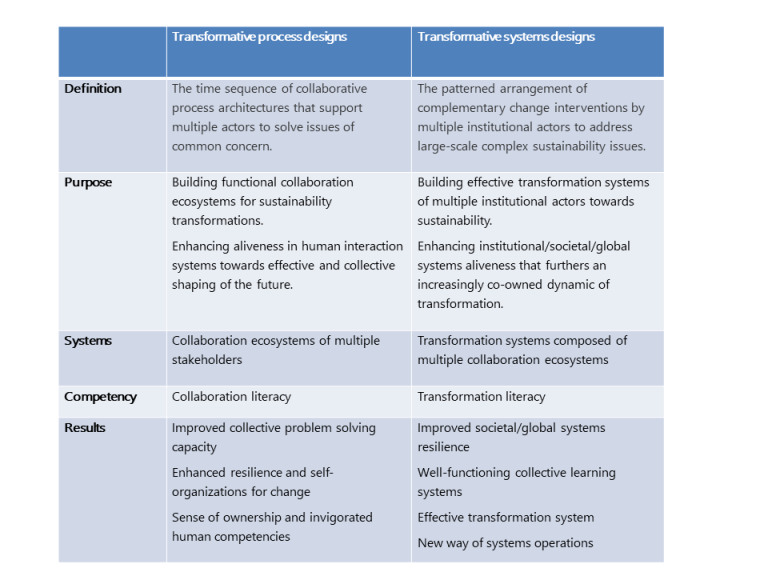
Transformation Literacy is the knowledge and capacity of a collective of actors to steward sustainability transformations effectively together across institutions, societal sectors and nations.
Petra Kuenkel
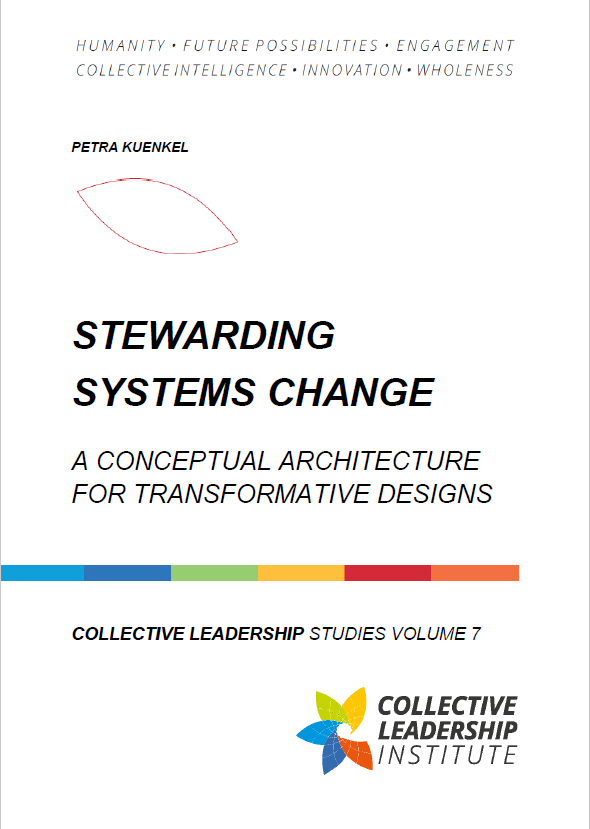
“Stewarding Systems Change – A Conceptual Architecture for Transformative Designs”- This Volume 7 of the Collective Leadership Studies argues that systems change is the intention of billions of activists, change agents, game-changers, and ordinary people. They need to expand their competency to steward transformations collectively. Based on the Collective Leadership Compass, this volume proposes a conceptual architecture for transformative change designs in large systems that cuts through the complexity of change initiatives by bringing human beings back to where they belong: into the center of attention of systems change, and into their emotional connection with an aspiration for a sustainable and interdependent world.
Citation: Kuenkel P. (2018). Stewarding Systems Change – A Conceptual Architecture for Transformative Designs, Collective Leadership Studies Vol. 7, Collective Leadership Institute: Potsdam/Germany, ISSN 2569-1171.
Download here.
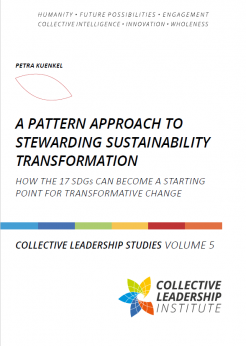
“A Pattern Approach to Stewarding Sustainability Transformation” – Volume 5 of the Collective Leadership Studies: Large system change requires new collaborative leadership approaches. The ability to recognise and shift patterns through applying six principles based on living systems theory can shift collaboration processes away from individual concepts of leadership towards a more systematic patterned approach, especially when used with a methodological tool such as the Collective Leadership Compass.
Citation: Kuenkel, P. (2018). A Pattern Approach to Stewarding Sustainability Transformation – How the 17 SDG Can Become a Starting Point for Systemic Change, Collective Leadership Studies Vol. 5; Collective Leadership Institute: Potsdam/Germany, ISSN 2569-1171.
Download here.
